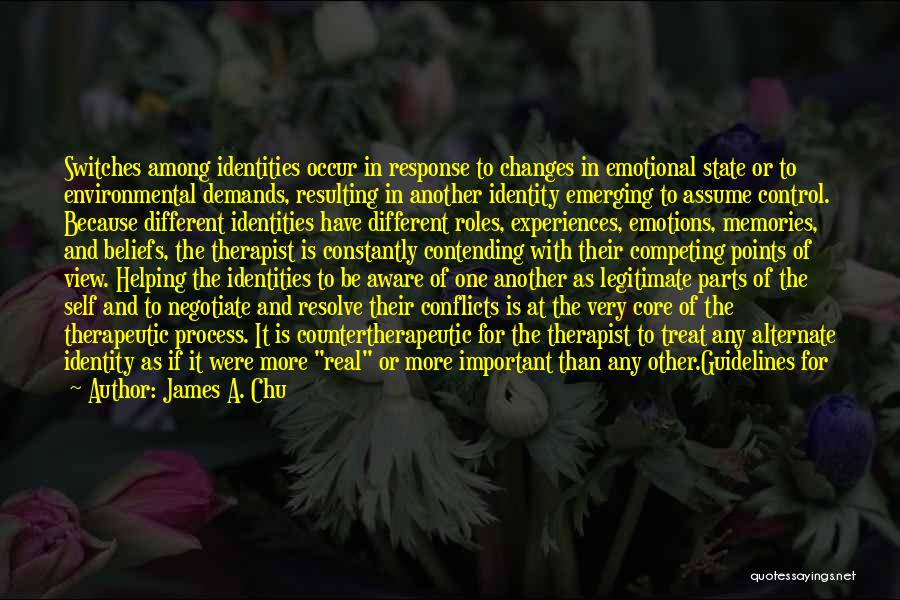Environmental Psychology Quotes & Sayings
Enjoy reading and share 3 famous quotes about Environmental Psychology with everyone.
Top Environmental Psychology Quotes

Cognitive psychology considers successive mediating events between the outer world of the organism (environmental input) and the behavior of the organism (response output). The gap between these two endpoints is reputed to be filled by various components (e.g., a complex memory system comprising several constituent parts, an information processing system also comprising several constituent parts, a "cognitive map," or a symbol manipulation machine. — Mecca Chiesa

Switches among identities occur in response to changes in emotional state or to environmental demands, resulting in another identity emerging to assume control. Because different identities have different roles, experiences, emotions, memories, and beliefs, the therapist is constantly contending with their competing points of view. Helping the identities to be aware of one another as legitimate parts of the self and to negotiate and resolve their conflicts is at the very core of the therapeutic process. It is countertherapeutic for the therapist to treat any alternate identity as if it were more "real" or more important than any other.
Guidelines for Treating Dissociative Identity Disorder in Adults, Third Revision — James A. Chu

Many people implicitly believe in the Hydraulic Theory of Violence: that humans harbor an inner drive toward aggression (a death instinct or thirst for blood), which builds up inside us and must periodically be discharged. Nothing could be further from a contemporary scientific understanding of the psychology of violence. Aggression is not a single motive, let alone a mounting urge. It is the output of several psychological systems that differ in their environmental triggers, their internal logic, their neurobiological basis, and their social distribution. — Steven Pinker





